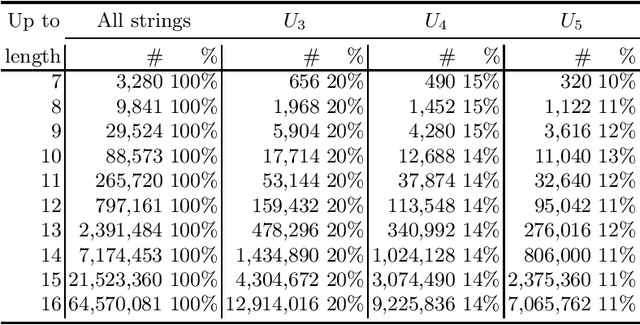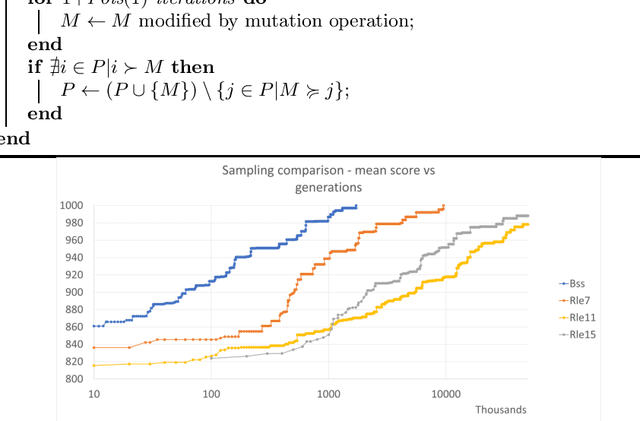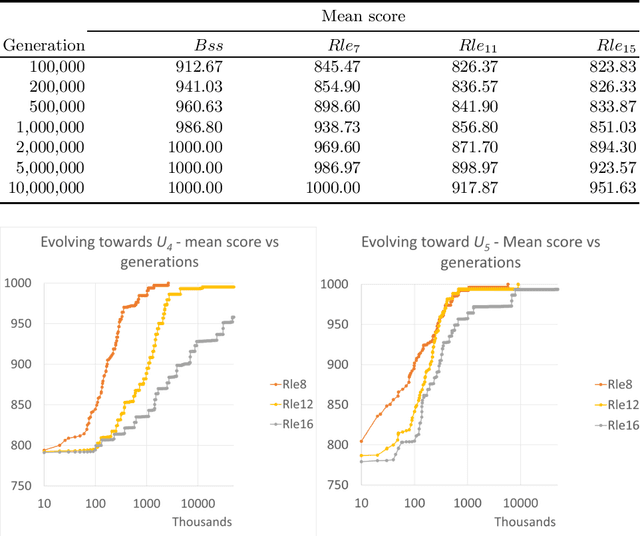A Study of Fitness Gains in Evolving Finite State Machines
Paper and Code
Oct 20, 2023



Among the wide variety of evolutionary computing models, Finite State Machines (FSMs) have several attractions for fundamental research. They are easy to understand in concept and can be visualised clearly in simple cases. They have a ready fitness criterion through their relationship with Regular Languages. They have also been shown to be tractably evolvable, even up to exhibiting evidence of open-ended evolution in specific scenarios. In addition to theoretical attraction, they also have industrial applications, as a paradigm of both automated and user-initiated control. Improving the understanding of the factors affecting FSM evolution has relevance to both computer science and practical optimisation of control. We investigate an evolutionary scenario of FSMs adapting to recognise one of a family of Regular Languages by categorising positive and negative samples, while also being under a counteracting selection pressure that favours fewer states. The results appear to indicate that longer strings provided as samples reduce the speed of fitness gain, when fitness is measured against a fixed number of sample strings. We draw the inference that additional information from longer strings is not sufficient to compensate for sparser coverage of the combinatorial space of positive and negative sample strings.
 Add to Chrome
Add to Chrome Add to Firefox
Add to Firefox Add to Edge
Add to Edge